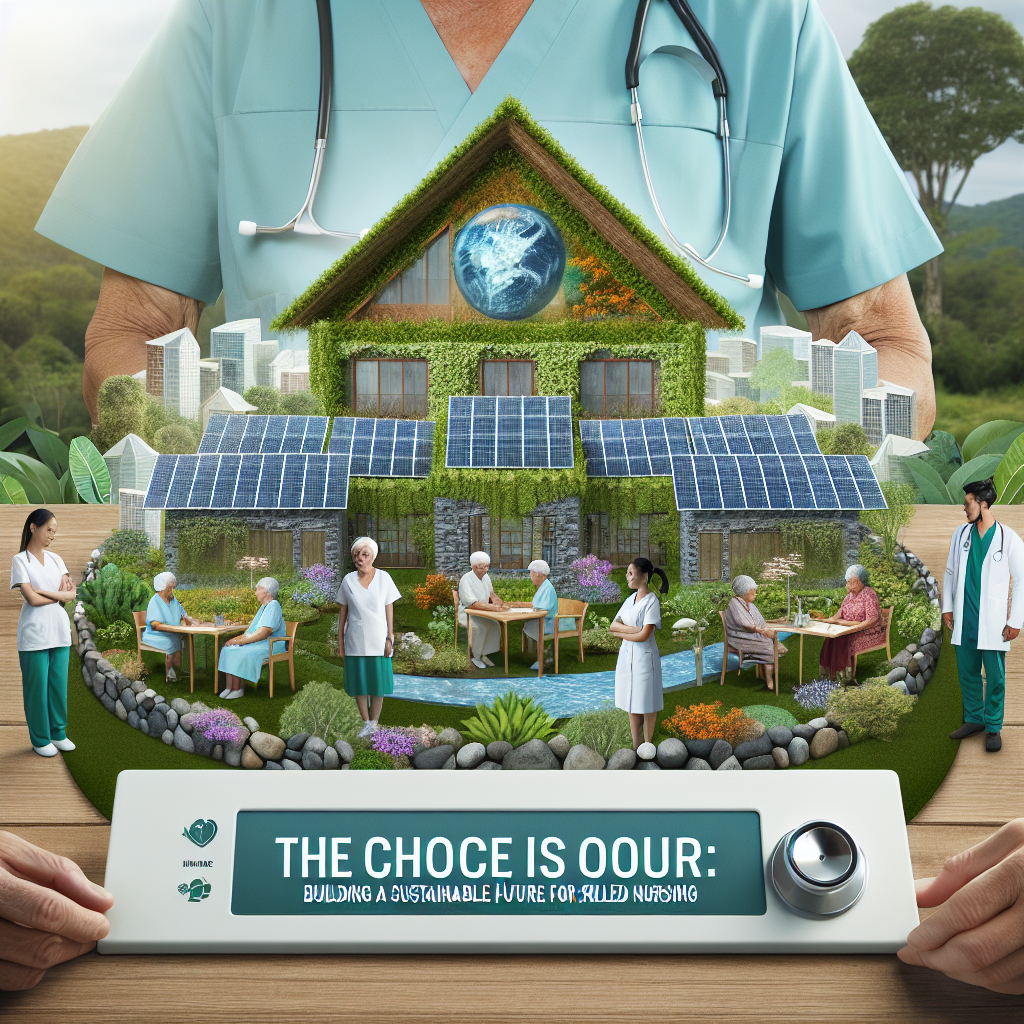New York, NY—In the heart of one of the world’s most bustling metropolises, an innovative conference recently unfolded, bringing light to the imperative call for sustainable development within the skilled nursing sector. Entitled “The Choice is Ours: Building a Sustainable Future for Skilled Nursing,” the event garnered significant attention, uniting healthcare professionals, policy makers, and sustainability experts in a concerted effort to redefine the future of long-term care.
The conference spotlighted a pressing issue facing the U.S.—an aging population coupled with an increasingly strained healthcare system. According to a recent study by the American Health Care Association, approximately 70% of Americans turning 65 will need some form of long-term care in their lifetime, a statistic that underscores the escalating demand for skilled nursing facilities equipped to meet this growing need sustainably.
Keynote speaker and environmental health advocate, Dr. Sophia Chang, emphasized the critical juncture at which the skilled nursing industry stands. “We are at a turning point,” Dr. Chang stated. “We have the opportunity to radically transform how we build, operate, and conceive of skilled nursing facilities, not just as places of care, but as bastions of sustainability and health promotion.”
The conference unveiled groundbreaking initiatives aiming to integrate renewable energy sources, energy-efficient designs, and waste reduction practices into the fabric of skilled nursing facilities. Among the highlights was the introduction of a pilot program deploying solar panels on the roofs of select nursing homes, a move expected to drastically cut carbon emissions and reduce energy costs.
Another focal point of the conference was the emphasis on creating ‘healing gardens’ within skilled nursing facilities. These spaces not only provide residents with a tranquil environment to connect with nature but also contribute to the facilities’ sustainability by enhancing air quality and supporting local biodiversity.
The discourse also ventured into the territory of policy and advocacy, with calls for governmental incentives to encourage nursing homes to adopt sustainable practices. Participants discussed the potential for tax breaks, grants, and other financial incentives as critical levers to accelerate the adoption of green initiatives within the industry.
As the conference concluded, the consensus was unmistakably clear: the path toward a sustainable future for skilled nursing is not only desirable but necessary. The insights and commitments garnered from “The Choice is Ours” represent a pivotal step forward in the journey to ensure that the care provided to our aging population is not at the expense of the planet.
With a robust foundation laid down by thought leaders and innovators at the conference, the skilled nursing sector is poised to embrace sustainability in a manner that aligns with global efforts to combat climate change, safeguarding a livable world for future generations. In the words of Dr. Chang, “The choice is indeed ours, and it’s time we make the right one.”


